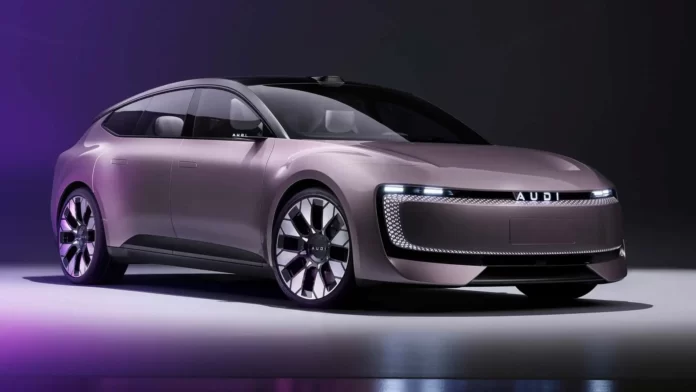Audi has officially launched a new electric vehicle brand in China, debuting with a distinctive nameplate “AUDI” that omits its signature four-ring logo.
This move, in partnership with SAIC, represents a shift aimed at capturing China’s expanding market of younger, tech-focused consumers.
At the unveiling event, Audi introduced the AUDI E concept, the first model under the new brand, which is set to hit the Chinese market in mid-2025.
According to Audi CEO Gernot Döllner, the AUDI brand is crafted for Chinese consumers who are significantly younger and more tech-oriented than global averages. “By launching this new brand, we are tapping into a more tech-savvy customer base,” said Döllner.
The AUDI E concept, which highlights an all-electric Sportback design, reflects the joint expertise of Audi and SAIC, combining German engineering with SAIC’s insight into the Chinese market. “Our partnerships in China are essential as the automotive industry undergoes the largest transformation in its history,” Döllner added.
Fermín Soneira, CEO of the new AUDI brand, explained that the collaboration between Audi and SAIC offers a “best of both worlds” approach, integrating Audi’s luxury engineering with SAIC’s rapid innovation capabilities and local knowledge.
The AUDI E concept will be built on the Advanced Digitized Platform, featuring 800-volt technology that enables super-fast charging — providing up to 370 km of range after a 10-minute charge.
Audi is committed to reducing time-to-market by over 30% with these joint ventures, bringing advanced electric vehicles to Chinese consumers quickly.
The new brand aims to broaden Audi’s presence in the world’s largest EV market, where premium Chinese EV brands like Nio and Xpeng have already established a significant foothold. The AUDI E concept showcases a range of features tailored to Chinese consumers, including driver assistance systems optimized for urban and highway environments, automated parking, and an immersive digital cockpit.
In addition to the Sportback, Audi and SAIC plan to introduce two more EV models, including an SUV, within three years, expanding Audi’s portfolio in China. By relying on local suppliers and a China-specific architecture, Audi aims to address local demands and differentiate itself in a competitive EV landscape. This new direction is expected to fortify Audi’s position in China, appealing directly to the market’s evolving consumer base.




